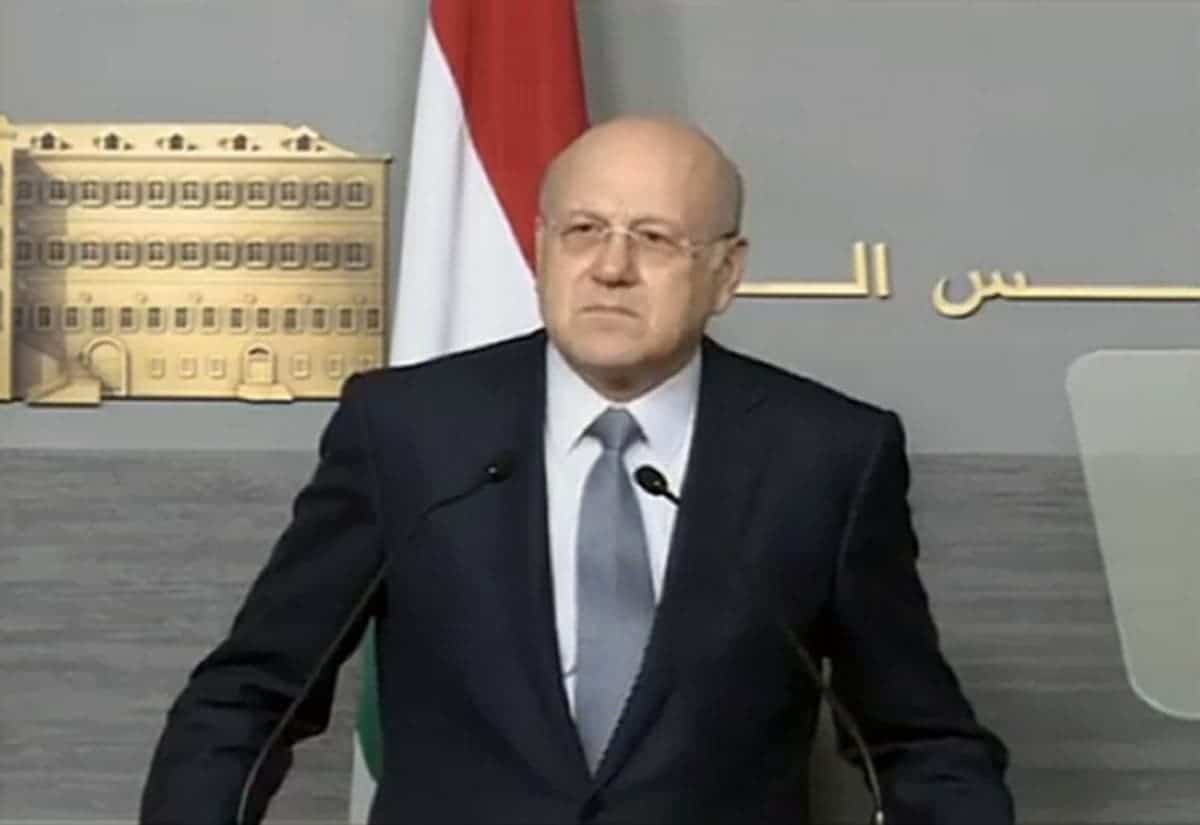Lebanese Prime Minister Najib Mikati urged feuding politicians Thursday to end the government’s paralysis and mend a damaging row with Gulf Arab states, as rifts threatened his fragile cabinet.
The government is breaking at the seams over a series of disputes involving a probe into last year’s monster port blast, and remarks by Information Minister George Kordahi over the Yemen war that sparked reprisals from Saudi Arabia and its allies.
The measures include blocking of Lebanese exports — a move that could plunge Lebanon further into a financial meltdown.
The crisis has split Mikati’s government — which has not met for three weeks — with some ministers backing Kordahi in his refusal to resign and others calling for him to step down to assuage Saudi anger.
“I call on all parties to… take the necessary steps towards a solution and I emphasize the need for the government to resume work to make up for wasted time,” Mikati told a news conference.
Kordahi must “take the necessary measures and prioritize national interest” over partisan or populist considerations, Mikati said, stopping short of asking for his resignation.
The row was triggered by comments by Kordahi, who in a pre-recorded interview broadcast last week, described the Saudi-led intervention in Yemen since 2015 as an “external aggression”.
‘Saudi interference’
Saudi Arabia retaliated Friday by giving Lebanon’s ambassador 48 hours to leave the kingdom, recalled its envoy from Beirut and suspended all imports from Lebanon.
Bahrain and Kuwait have responded with similar measures and the UAE on Saturday recalled its diplomats from Beirut in “solidarity” with Saudi Arabia.
Blocking imports from Lebanon is a blow to a country in financial and political ruin and where a weak government is struggling to secure international aid, namely from wealthy Arab neighbors.
Saudi Arabia is Lebanon’s third-largest export market, accounting for six percent of the country’s exports in 2020, worth around $217 million, according to the Lebanese Chamber of Commerce.
There was a sign of relief, however, on Thursday with the International Monetary Fund saying it had begun “preparatory” talks with Lebanon on a new aid package.
Lebanon — which the World Bank says is facing one of the worst economic crises since the mid-19th century — hopes the talks will help unlock billions of dollars in financial aid.
Hezbollah, which is backed by Saudi’s key regional ally Iran, has defended Kordahi and refuses his dismissal.
“Kordahi did not make a mistake for him to resign,” its deputy head Naim Qasim told Syria’s Al-Ikhbariyya TV.
“We do not accept Saudi Arabia’s interference in the make-up of the Lebanese government and who should be a part of it.”
Blast probe suspended
Hezbollah is at the center of another dispute involving judge Tarek Bitar, the lead investigator into the August 2020 port blast.
Its representatives in the government said they would boycott cabinet meetings until Mikati’s administration heeds Hezbollah demands to replace him.
“Whoever thinks they can impose their will through political paralysis and escalatory rhetoric is mistaken,” Mikati said Thursday, in a thinly veiled criticism of the Shiite group.
He also reiterated his rejection of “any kind of (political) interference” in the port probe.
But on Thursday, Bitar was told his inquiry was on hold — for the third time — because of a lawsuit filed against him by ex-public works minister Youssef Fenianos, said a court official who declined to be named.
Fenianos is among a group of former ministers suspected of negligence over the port explosion.
Human rights groups and victims’ relatives fear the repeated suspensions are a prelude to Bitar’s removal, which would further derail the probe into Lebanon’s worst peace-time tragedy.
Bitar’s predecessor, Fadi Sawan, was forced to suspend investigations and removed in February, in a move widely condemned as political interference.
On Thursday, relatives of blast victims rallied at the port to mark 15 months since the tragedy.
“I lost my only son. It’s those criminals, the rulers of this country, who killed him,”

